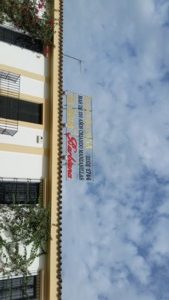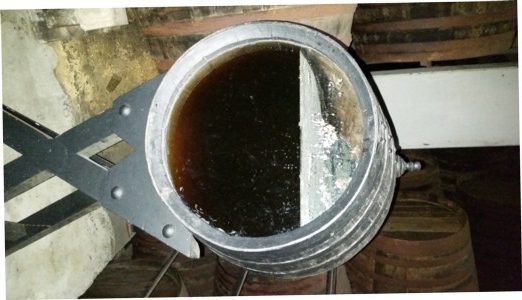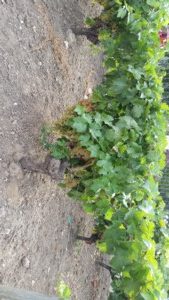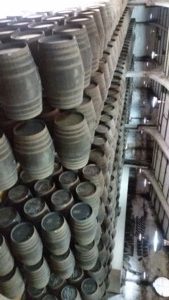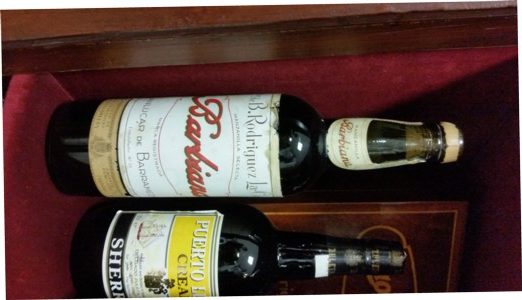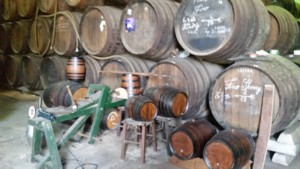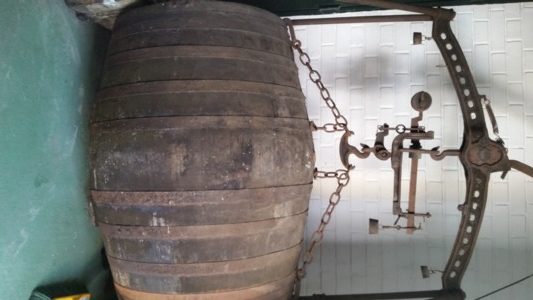Documents found in the company archives place the founder, Don Francisco Gil de Ledesma y Sotomayor, in Sanlúcar de Barremeda in 1719 purchasing wine for resale. Several years later, he set up his company, based in Sanlúcar, to carry out commerce with the American colonies of Spain. By the end of the 18th century, the company was also working its own vineyards along with aging and selling fine wines and it is now one of the oldest family companies in the region of Jerez, founded in 1744. One of Don Francisco’s direct female descendants married Don José Delgado y Zuleta in the late 19th century who in turn took over the family enterprise and gave it his name. Around this time, they were named “suppliers to the royal family” and the business began to flourish. In 1918, “La Goya” was created as the flagship brand of the bodega. Named after a very famous dancer of the time, this brand soon became one of the most famous and popular brands of Manzanilla. In 1978, Delgado Zuleta, still a family held corporation, purchased “B. Rodriguez La-Cave.”, a small, traditional bodega in Sanlúcar founded by a family with French roots.
Manzanilla is, by definition, dry fino sherry produced and aged in cellars within the town of Sanlúcar de Barremeda. Like all Sherries made with the Palomino grape, the vineyard provenance for the fruit can be anywhere within the Jerez growing zone. The distinction between Fino and Manzanilla lies entirely with the location of the cellars and in fact, Manzanilla IS a Fino sherry albeit with its own DOC. Finos, always dry, acquire their tell-tale characteristics through aging in the airy bodegas in and around the city of Jerez, in Andalucia. This is one of the few areas in the world where wines, if exposed to just the right amount of air contact in the barrel, will develop a mold or veil covering the exposed surface of the wine. This veil, or flora, protects the wine from oxidation and imparts a unique aromatic profile to the wines, with notes of almonds, salt air, candied citrus and chalk. The wines are then aged using the ancient solera process which has changed little in the last couple hundred years. In fact there are bodegas in Jerez that still replenish and bottle from soleras dating back to the mid-19th century.
The Barbiana solera came to the company through the purchase of B. Rodriguez La-Cave and it is fundamentally different from the previous Delgado Zuleta soleras. Since it originated in the Rodriguez bodega, located in the higher zones of Sanlúcar de Barremeda, its flora or veil benefited from the poniente sea breezes which are ideal for Manzanilla aging, whereas the La Goya solera originated in the lower zones of the town in the traditional cellars of Delgado Zuleta that was less desirable from this perspective. For this reason, the Barbiana solera is kept separate in the new cellars which are now located in the upper, more desirable zone of Sanlúcar. This location is graced with the classic arcilloso (white chalk) soils ideal for aging fine Manzanilla and the white soil is evident beneath the rows of old barrels in the cellars. A subterranean creek running beneath the cellars provides the ideal level of natural humidity. The location of origin combined with this ideal location for solera aging provides the fundamental personality of this sherry. For Manzanilla aficionados, the location of the bodega with respect to the poniente breezes and bands of chalky soil IS the terroir of the wine.




